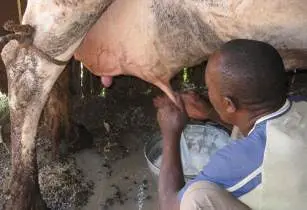Rwanda has approved a new set of regulations concerning the preservation, collection, transportation and selling of milk
The country’s dairy sector has increased its milk production, processing and trade in the last few years, but due to a lack of regulation, the industry had been facing challenges in terms of unfair market competition and production of substandard dairy products, specifically milk.
According to Tony Nsanganira, Rwanda’s state minister for agriculture, challenges in the milk industry created the need for a legal instrument to regulate the sector. A cabinet meeting last week approved a ministerial order towards that end.
The ministerial order is about order, and most importantly, about health. We want to produce milk that meets standards so that there are no issues of health to consumers. And to a certain extent, unfair competition will be reduced, if not be eradicated. With these regulations, people will do fair milk business and also have standard products,” said Nsanganira.
He added that order is aimed at supporting both small and medium industries in milk production to promote value addition across the country. “With this legal instrument, dairy farmers and milk dealers are being challenged to embrace quality to boost profits and contribute to economic growth,” he said.
The order states that every milk aggregation centre shall have a qualified milk technician in charge of quality testing. All the milk from these centres will have to have a certificate of origin, so that tracking is easier as well. Implementation of the new guidelines in milk business will gradually come into force, according to the minister.
Production of milk has continuously increased through the national one-cow-per-family flagship programme which was introduced in 2007 and has since seen over 200,000 cows distributed to vulnerable families. According to the minister, the government has a target of distributing 350,000 cows by 2017. Accordingly, the country’s milk production is expected to increase to 730,133 metric tonnes from the current 706,030 metric tonnes by 2017.





